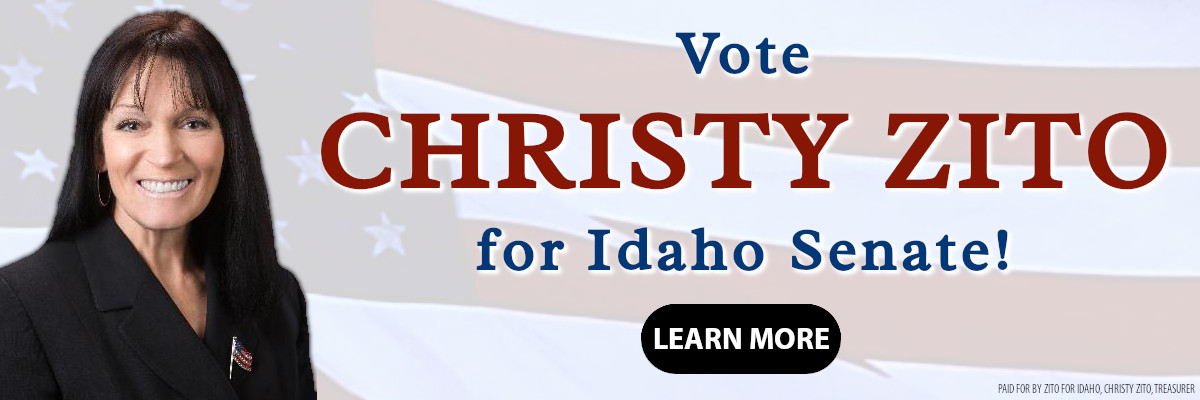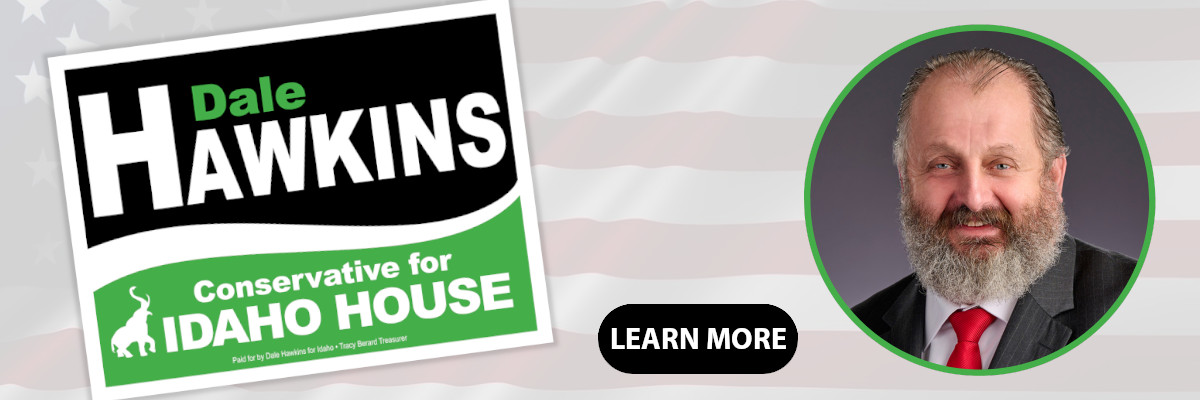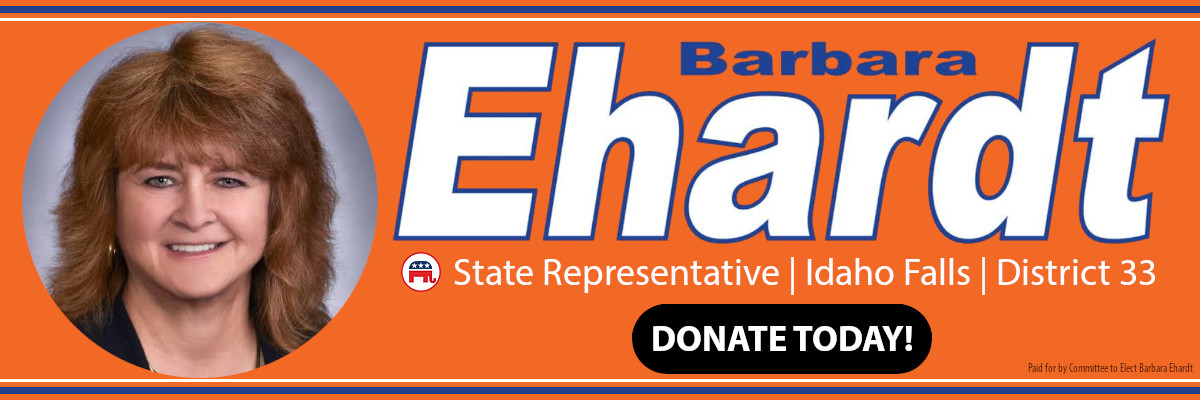
Sunday Masher: Constitution Corner – What If?
By Doug Traubel • September 24, 2023The Sunday Masher is a weekly column where Idaho Dispatch contributors provide valuable, insightful, and interesting information to Dispatch readers. Submit your masher ideas or questions for this column to info@idahodispatch.com. We may feature a response to your idea! This mash up was written by Doug Traubel. Contributor columns do not necessarily reflect the views and opinions of those at the Idaho Dispatch.
I have no doubt that the City of Eagle will renew its contract with the Ada County Sheriff’s Office for police services, but what if? What if the bottom fell out in Eagle, or anywhere in the county? Is the Sheriff’s Office capable of filling the vacuum?
Let us begin with the fact that no matter how many police departments exist, and how many are born or dissolve, — the jurisdiction, responsibility and authority of the Sheriff does not change.
The elected Sheriff is the CLEO, (Chief Law Enforcement Officer) in Idaho’s forty-four respective counties with unlimited jurisdiction — notwithstanding the State Capitol building and areas of “exclusive” federal control — like military bases and federal courthouses.
Unlike a police department, the Office of Sheriff must exist per the Idaho State Constitution. A Sheriff’s duties are tied first and foremost to his oath of office and second, set by statute.
City limits apply to the cities, not the Sheriff. Generally, Sheriffs leave daily law enforcement operations to police departments in the cities for obvious and practical reasons. Consequently, Sheriffs develop a mindset of relegating themselves to a visible presence only in the unincorporated areas of the county and contract cities. A regular exception to this is the Civil Section. The “civil” deputy’s role is to enforce court orders and serve process throughout the county, while penetrating city limits freely. Civil process is a function assigned by statute to the Sheriff.
To the detriment of the citizen, there are some Sheriff’s Offices in the US that have allowed themselves to devolve to only running the jail and serving civil papers. It is difficult to restore funding for a patrol/field presence when annexations eat up areas deputies once patrolled. Not knowing the substantive difference between police and Sheriff, most taxpayers would see it as a duplication of services to fund a deputy where a police officer now patrols. Citizens and Commissioners should jealously preserve the funding of their Sheriff for a field presence. Your Sheriff is the last line of defense. The Sheriff’s Office should be staffed and funded sufficiently to be able to restore order and interpose between government overreach and the rights of the citizen.
The Sheriff’s boss is The People. His oath is not to a mayor, governor, judge, or president; it is to the Constitution for the United States and the Idaho State Constitution. He serves and answers to The People.
As the CLEO, the Sheriff has a duty to enter the city if its police department dissolves or in times of civil unrest. The Sheriff can also act unilaterally in the city or even take over a scene if he deems it necessary; for instance, if the rights of The People are being stepped on by the municipality itself (think of churches shut down by police during COVID or the hypothetical of gun confiscation by the ATF).
The duty, jurisdiction, responsibility, and authority are meaningless without the manpower to occupy the space and put “the oath in action.” A Sheriff must recognize that “it can ALL literally fall on him” at any time and as such, must have a plan and the ready-reserve personnel necessary to fulfill his responsibility anywhere.
The Sheriff’s Office is funded by property tax dollars. Law enforcement is expensive. The Sheriff’s Office already consumes most of the county budget. How can a Sheriff fulfill the enormous responsibility as the CLEO when faced with the realities of cost? Taxpayers do not want to fund a duplication of service when existing city police and county deputy personnel meet the established target ratio of one officer per thousand citizens in patrol areas. But what about when the bottom falls out? Is the Sheriff’s Office capable of filling the vacuum anywhere in the county with existing funded personnel?
No. Not at present, but there are two (free) answers to the dilemma: Reserve Deputies and Posse members. The mere mention of them makes ICRMP (Idaho Counties Risk Management Program) and County Commissioners cringe. County governments need to change their thinking on this.
Reserve Deputies are volunteers. They are trained to two levels. Level I allows them to patrol alone (fully equipped) albeit with less experience, but equal training and authority as a full-time, paid deputy. There is nothing on the uniform or patrol car that distinguishes the reserve deputy from a full-time deputy. Level II allows them to ride with a full-time deputy.
I use “Posse” as a familiar term. The word is not mentioned in statute, but has been used by Sheriffs throughout history. In modern times the posse is mostly ceremonial or limited to search and rescue, if it exists at all, county-to-county. *Idaho state code authorizes the Sheriff to call upon as many inhabitants of the county as he deems necessary to perform his duties.
A forward-thinking Sheriff would “call up” (invite), screen, and train posse members in a variety of abilities and functions in advance of a need — to be used as field service multipliers at no expense to the taxpayer. This is cost effective to the citizens and is a bridge between The People and their Sheriff.
The posse concept takes me back to how things worked in London before the existence of its first full-time professional police force. Robert Peel is credited as being the father of modern policing. The public was concerned that the idea of a full-time, paid force could evolve to a tyrannical internal security force like Rome’s Praetorian Guard.
Robert Peel answered the skepticism of the people with Peelian Principle #7:
“To maintain at all times a relationship with the public that gives reality to the historic tradition that the police are the public and that the public are the police, the police being only members of the public who are paid to give full-time attention to duties which are incumbent on every citizen in the interests of community welfare and existence.”
Peelian Principle #7 recognizes a healthy citizen-police relationship for society, which has been damaged and must be repaired.
What do reserve deputies and posse members look like in application and what is the benefit to contract cities in particular?
Being a reserve deputy is a huge personal commitment and liability to the citizen and county. I began my career as a reserve. It was a wonderful and rewarding experience. The personal cost of equipment can be prohibitive. In addition, the amount of time invested in the initial training and continual yearly training is demanding and then there is the minimum required hours of monthly volunteer service. Recruiting reserve patrol deputies from the city they will serve is key to the success of a reserve deputy program.
At a minimum, a uniformed reserve deputy (Level II) can ride with a full-time deputy doubling the service on each call but not the cost.
Ada County has many retired peace officers and former military residents to draw from for reserve officers and posse members. In addition, there are many churches to draw from for both reserve deputy and posse members.
Posse members would be trained far below the level of a reserve deputy and are NOT peace officers. Of course, they have the same arrest powers as a citizen, but posse members would seldom be placed in a role requiring such action. Posse members can be trained to be part of a large force multiplier to pull from to perform traffic control, crowd control, riot response, interposition, search and rescue, green belt patrol, river, and lake patrol, “citizens on patrol,” and special operations at the direction of the Sheriff anywhere in the county. In most roles the posse would operate under direct deputy supervision and have no authority until they arrive at a muster location and receive their supervised assignment. Posse members would be background checked like reserve officer candidates with more applicants denied than accepted because the public trust demands discrimination.
When a city is unwilling or unable to fund a contract for police services with the Sheriff it must accept that response time and resources will be affected due to a drop in the number of deputies assigned to the specific city footprint.
In the case of Eagle, Star, or Kuna the Sheriff can argue the need to fund more north or south county deputies to the commissioners. Reserve deputies and posse members can augment existing deputies within an existing contract or not.
Recruiting and training the number of reserve and posse volunteers needed takes a long time and should be done by the Sheriff before a need or crisis arises.
Many non-violent situations can be made stable by volunteer personnel until an actual full-time deputy or reserve deputy can arrive. Tapping into the citizenry for a role in serving their community alongside their Sheriff helps remove the “us vs. them” attitude of government, improves response time and reduces the tax burden.
Tags: Chief Law Enforcement Officer, Citizens on patrol, CLEO, Deputy, Government, ICRMP, Idaho Code, Idaho Counties Risk Management Program, Idaho State Constitution, oath in action, Peace Officer, Peelian Principle, Police, Posse, Reserve Deputies, Robert Peel, Rome’s Praetorian Guard, Sheriff, Statute, United States Constitution

















Encouraging more Posse Members is a great start.
The article states that “…Your Sheriff is the last line of defense…”.
A Constitutional Sheriff, Deputies and Posse Members are welcomed.
Yet in emergencies, one must realize that Our Last Line of Defense is actually ourselves, family, neighbors and the Right to Keep and Bear Arms.
While, to some at least, the posse concept may come as a stretch, it is not without precedence in Ada County. During “snowmageddon” in 2017, the ACCEM executive board discussed this very thing and agreed that civilian groups, including the “notorious” 3%’ers would make ideal recruits for help with evacuation and other scenarios if Eagle, Garden City and parts of Boise were too have been evacuated in the event of flooding. ACHD played a big role, as did the Ada County commission, in ensuring that the flooding didn’t get that far. I was on the ACCEM at that time and it was gratifying to see this kind of planning occur. The Sheriff at the time assigned a small group to work out details. ACHD employees and equipment were dispatched to bridges with equipment to keep trees from creating dams. VRT and schools had busses staged and ready for excavation needs. Drones were used to keep tabs on the rising river and breach near Joplin. Exciting times, that spring. Some of you might be shocked to know that even the Democrat on the ACCEM didn’t object. BTW, this group is made up of all the mayors, the county commission, Sheriff and an ACHD Commissioner. I will say that was the most interesting part of my tenure at ACHD to date. It was also very gratifying to see the Sheriff express confidence in citizen groups.
Great article! Well done. Anytime you or I attend a sheriff campaign for office event we should always ask the candidate why the sheriff is an elected position. If they can’t answer with some version of being the lead law officer in the county and directly accountability to the people in their county, then they are unworthy of our confidence and vote. What we need is a peace officer (Andy Griffith) not a law enforcement nut job. (Don Knotts)
Thank you Doug for you excellent comments on a sheriff’s duties as most of us in rural areas understand what it means to have a constitutional sheriff but many newbies to our state don’t have a clue as to what powers a county sheriff holds.
Great article!….Two thumbs up for “Idaho Seven” response.
Good article. I have been a posse member with the CSPOA for three years. (Constitutional sheriffs peace officers association .) The problem with a lot of sheriffs offices ,they are more or less puppets for local government officials. True constitutional sheriffs are independent from local government influence. Here in Idaho there’s only a few sheriffs who belong to CSPOA. I wonder why? I have called around and have asked why but get no answer. So are our sheriffs truly independent and will protect its people? or do they work for local government officials? The sheriffs ARE the true law enforcement of the states.
Sounds great in principle. It’s unfortunate for those like me who were arrested by Sheriff’s deputies for exercising their First Amendment rights during the plannedemic . The Sheriff is truly a lackey for the Little Emperor. The system is broken and full of corruption. Truth be known, we are currently WROL because not one of the praetorian guard has honored their oath. Not one will cross that blue line in the sand. No, not one.